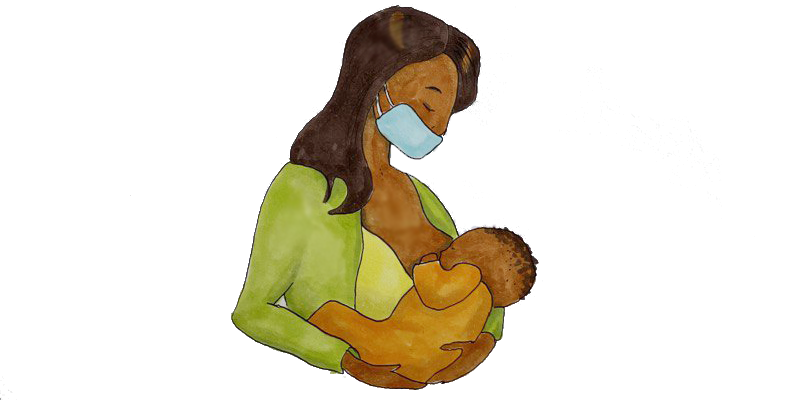Got Covid? Keep Calm and Carry On Breastfeeding
When Grace started to feel the sniffles coming on, she did what every other mother of a newborn baby and toddler around the world does: keep on doing what she normally did.
“Every mother since the beginning of time has a story about … how they just wanted to lie down to get some rest, but instead made playdough cookies with their toddler,” Grace wrote in an article about her experience.
Then, she started to feel worse, thought “Uh-oh,” and got tested. She had COVID-19, but she still continued to breastfeed
“Sure, this was a new virus and there were a lot of unknowns, but try to explain that to a crying newborn or a toddler,” she said.
Breastmilk contains antibodies against the virus
As of November 5th, more than 48 million people worldwide have contracted this highly contagious virus. It’s impossible to say how many of them are new mothers or pregnant women. Still, medical experts like the World Health Organization, UNICEF and government health departments around the globe agree that they should continue to breastfeed if they are up to it.
Mother’s milk contains an array of antibodies that help protect an infant from day one. So the minute a mother comes down with COVID-19, her body begins to make antibodies to fight off the virus.
This year, a study by the WHO of 46 breastfeeding mothers with the SARS-CoV-2 virus found the presence of Immunoglobulin A in their breastmilk. IgA, as it’s known, is an antibody that plays a crucial role in the immune system.
That’s why paediatricians call breastmilk a child’s first vaccine. It’s simply the best way to protect a baby from getting sick – or to reduce the severity of the illness if they do contract the virus.
Of those 46 breastfeeding babies, one was found to also have Covid. It wasn’t clear whether the baby became infected through breastmilk or – more likely – simply because the child was in close contact with its mother. So far, there are no confirmed cases of a baby contracting the disease from breastmilk.
The WHO says that the few confirmed cases of COVID-19 in young children so far have been only mild or asymptomatic illnesses. For this reason, the organization recommends that pregnant women with SARS-CoV-2 breastfeed immediately after giving birth, and keep the baby with them.
For a COVID-positive woman giving birth, keeping that newly born baby in bed with her is particularly imperative. Not only does the baby get the antibody benefits of breastmilk, but also experiences the skin-to-skin contact that is so vital to the long-term health of the child.
Be fanatical with hygiene
Even if a mother does end up in hospital, the WHO recommends bringing the baby with her if she can, because skin-to-skin contact is so important. If a mother becomes too ill to breastfeed, the organization suggests feeding the baby expressed milk or breastmilk from a donor bank (La Leche League or the hospital can help with that) so that the infant gets the antibodies.
Along the way, it is essential to maintain strict hygiene. Wash hands for at least 20 seconds before and after holding your baby. Sneeze or cough into a tissue and throw it away immediately. Disinfect all surfaces fanatically. Change clothes frequently. And wear a mask. Do not use a mask twice.
As for Grace, she and her kids made it through, but she says it wasn’t easy. The worst part she says was the quarantining. Getting a break – downtime to nap – wasn’t possible, because family members and friends had to stay away.
“The isolation was almost unbearable at times. I am so grateful that my symptoms were manageable at home and I was able to care for and feed my children. Every time I nursed, I would tell myself I was literally giving my baby health and life, and that really helped when I just wanted to curl up and cry.”
By Alison Langley
Alison Langley is a retired La Leche League leader living in the Alps and enjoying life.
Illustration by Aleksandra Koroleva
Aleksandra, originally from Moscow, Russia, now lives in Adliswil with her husband and almost-four-year-old son. She specializes in clinical psychology and started studying illustration after her son’s birth. In her free time Aleksandra likes sleeping, just as all mothers do. https://www.instagram.com/uber_evil




